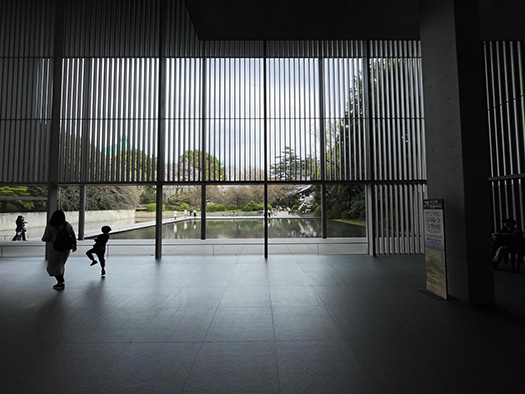
人間には寿命がある。どんなに深い交流をしてきた人間同士も、黄泉を境するときは必ず訪れる。そういう事前の報告・告白を受ける、その人間の体力の状況をつぶさに直接その人から耳にすることが増えてきた。
ちょっと不思議な静けさの時間。
だんだんそういった時間・出会いが増える。やがてこいつと、不可逆な別離がやってくると深く知らされる機会。これは避けがたい。自分自身すらそういった状況と正対せざるを得ない時間も幾度か経験している。逃れがたい諸行無常。
そういう人間同士の時間・体験が積層してくると、みなさんはどう感じられるだろうか。
わたしの場合は、ある「諦念」に似た心理が沸き起こり、覚悟というようなものを自覚するようになる。そしてやがて、今現在の状況に立ち返って、今この時間への深い愛着の心理に満たされるようになる。一期一会。
そんな気分が積層するようになってくると、昔人でありながら交友しうる、作家たちの文章であったり表現であったりとの「対話」の意味合いが深く感じられるようになる。その人物・作家とのディープな「対話」。
表現者というのは、その人間の深い部分を自ら表側にえぐり出してくれている。病気や死というものは誰にでも普遍的にやってくるけれど、それについてまでかれら表現者とは対話できる。「わたしはこう生きたよ」というコミュニケーション。ある意味、知友たちと同一の心理での「つきあい」が可能なのだと思う。
人それぞれの命との対話に実質が伝わってきて、むしろだんだん心はシンプルになれる。
結局人間は、その最期の瞬間まで「どう生きるか」をコミュニケートし続けるのだと。自分同様に同世代の友人知己も、このことからは逃れられない。そしてそれまでの時間の過ごし方、すなわち「その人間の生き方、死に様」に正面から向き合うようになってくる。それが「交友」ということなのだろう。
自分自身も含め友人知己たちと、いくつかそのような対話時間を持つようになってきた。
昔人の武士たちの生き方事跡を見ると、そういう黄泉を境する「水杯」についての描写にも接する。
だんだんとそういう「リアリティ」が理解できるようになって来て、ふしぎと静かさの感情が優先するようになって来た。悲観はもちろんあるのだけれど、むしろいまこの時間の味わいが深まるとも思っている。「わかった、お互いしっかり見届けような」というような内心の対話。
English version⬇
[The quiet shock of an acquaintance’s confession of a ‘medical condition’
It is an inevitability of life to border Hades with people who lived in the same time and under the same circumstances. Time to face such inevitability. The dialogue ‘So, how do you live? …
Human beings have a life span. No matter how deeply people have interacted with each other, there will always come a time when they will cross the Hades. I receive such advance reports and confessions, and increasingly hear directly from the person in question about the state of his or her physical fitness.
It is a time of a slightly mysterious silence.
Gradually, such times and encounters increase. An opportunity to be deeply informed that, in time, an irreversible separation from this person is coming. This is inevitable. Even I myself have had to face such situations on several occasions. It is an inescapable impermanence.
How do you feel when these human times and experiences are layered on top of each other?
In my case, a kind of ‘resignation’ arises in my mind, and I become aware of a kind of preparedness. Eventually, I return to the present moment and am filled with a deep attachment to the present time. One lifetime.
As such a feeling of ‘dialogue’ with the writings and expressions of writers, with whom you can be friends with in the past, becomes more and more deeply felt. A deep ‘dialogue’ with that person or writer.
The expressive person is the one who reveals the deepest part of the human being to the public. Illness and death come to everyone universally, but even these can be discussed in dialogue with them. Communication that says: ‘This is how I lived. In a sense, I think it is possible to have the same psychological ‘relationship’ with them as with friends you know.
The substance of the dialogue with each person’s life is conveyed, and the mind can gradually become simpler and simpler.
In the end, human beings continue to communicate ‘how to live’ until the last moment of their lives. Like myself, friends and acquaintances of the same generation cannot escape this. And they come to face squarely the way they spent their time up to that point, that is, ‘how that person lived and died’. This is what ‘companionship’ means.
I have come to have several such conversations with friends and acquaintances, including myself.
When I look at the traces of the way of life of the warriors of old, I also come into contact with descriptions of the ‘water cup’ that borders the Hades.
Gradually, I have come to understand such ‘reality’ and feelings of mystery and tranquillity have taken precedence. Of course there is pessimism, but I also think that it deepens the flavour of the present moment. An inner dialogue like, ‘Okay, let’s see each other through.’
Posted on 3月 30th, 2025 by 三木 奎吾
Filed under: 日本社会・文化研究







コメントを投稿
「※誹謗中傷や、悪意のある書き込み、営利目的などのコメントを防ぐために、投稿された全てのコメントは一時的に保留されますのでご了承ください。」
You must be logged in to post a comment.